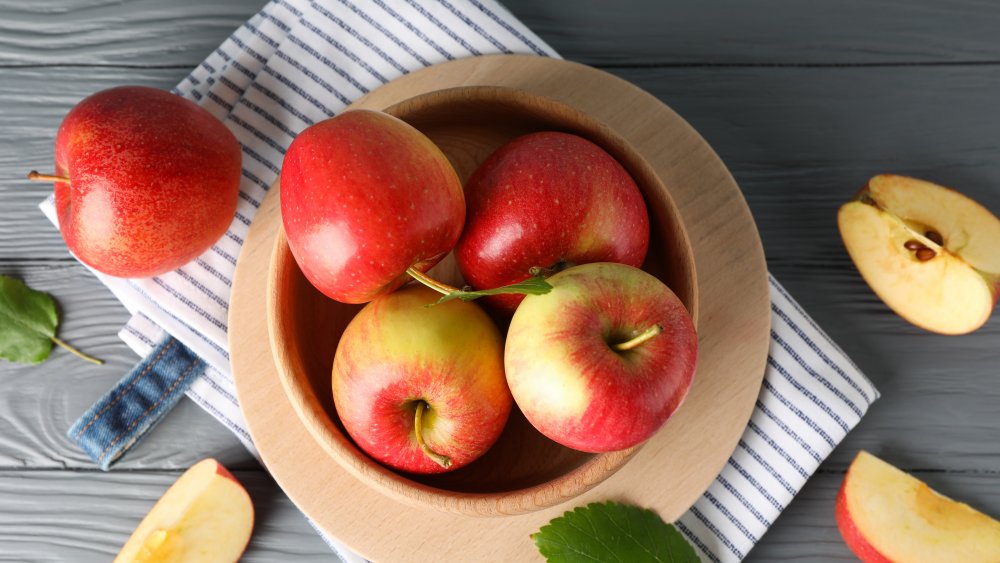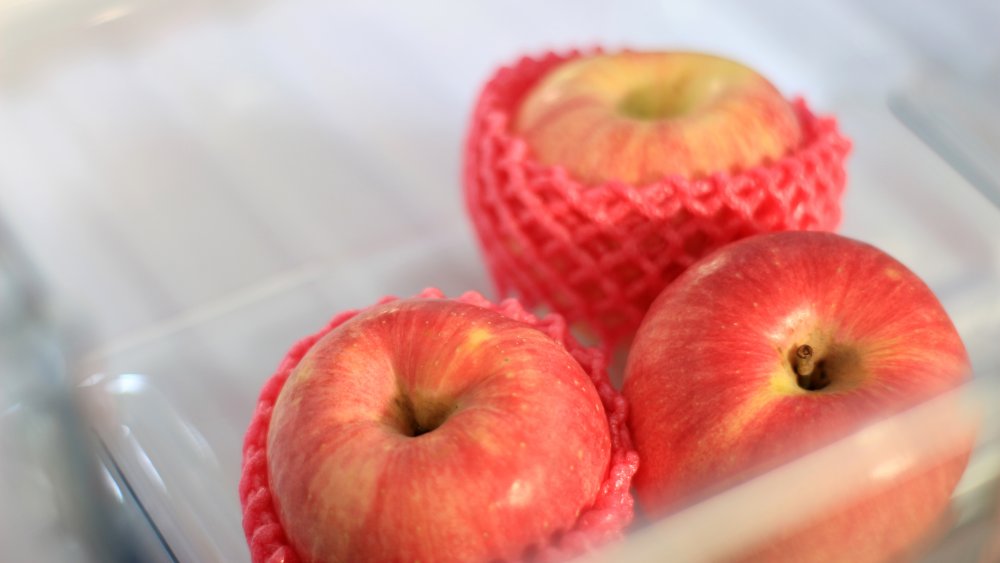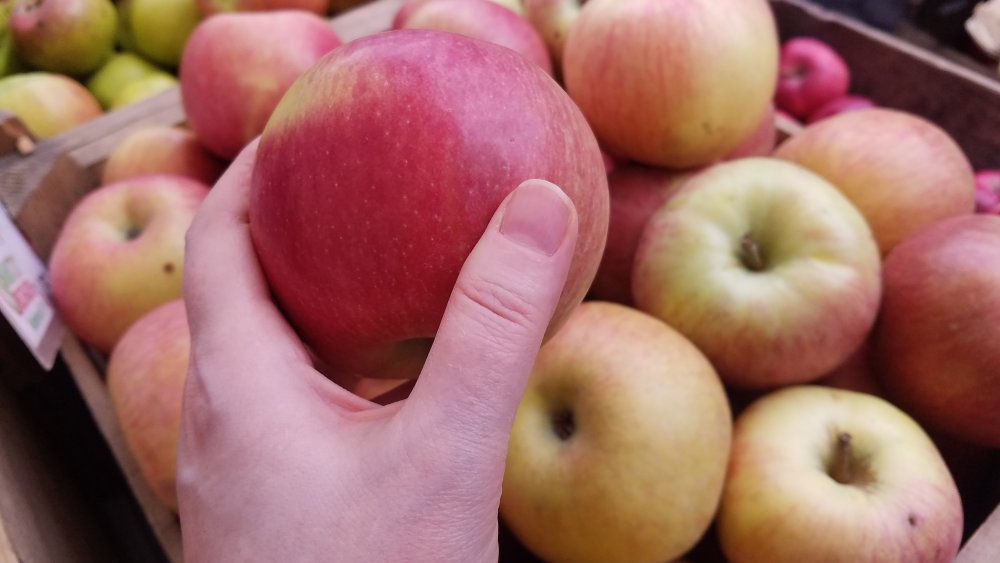You've Been Storing Apples Wrong Your Entire Life
A bowl full of apples may make a lovely autumn centerpiece, but after a day or so left out at room temperature, the apples themselves will soon lose that fresh-picked taste and crispness. The good news, though, is that apples are one of the longer-lasting fruits — as long as you store them correctly, you may be able to enjoy your autumn harvest throughout the winter when other fruits are in short supply.
The first step towards perfect apple preservation lies in selecting the right varieties. According to Gardener's Supply Company, apples with thicker skins, which also tend to be the tarter, later-harvested varieties, are better suited to long-term storage: Granny Smiths, McIntoshes, Fujis, Romes, Northern Spies, and Honeycrisps are all good keepers. Sweeter, thinner-skinned apples like Gala and Delicious will tend to deteriorate rather more quickly, so these are the apples you should be eating first.
Storing a small amount of apples
If you don't have too many apples to store, the refrigerator is a good place as apples are optimally kept at a temperature of 30 to 35 degrees. Just make sure they have an entire bin to themselves, as the ethylene gas apples emit as they age may speed the decay of any other fruits or vegetables in the vicinity.
Cover the apples with damp paper towels or keep them in a plastic bag in which you've poked a few holes, as this will help raise the overall humidity level — apples are one type of produce that actually does benefit from staying moist (via Food and Wine).
Storing a large amount of apples
If you'll be storing a lot of apples, you may need to find space in a cellar or garage. Cool temps are good, but make sure the thermometer does not dip below freezing, since otherwise your apples will turn into a mushy mess. Even then, you may still be able to salvage frozen apples for cooking purposes as long as it's in a recipe where texture isn't crucial.
Prior to storing the apples, wrap each one in newspaper, then place the wrapped apples in crates or bins (preferably in a single layer). Store different varieties separately — apples continue to ripen in storage, but different types will do so at different rates. Generally, though, larger apples ripen more quickly than smaller ones, so make sure to use the largest ones first. Also, be sure to check your apples periodically for any signs of spoiling, and remove any that appear to have started rotting — while "one bad apple can spoil the bunch" is an apt metaphor in social situations, it is quite true in the literal, fruit-related sense as well.


